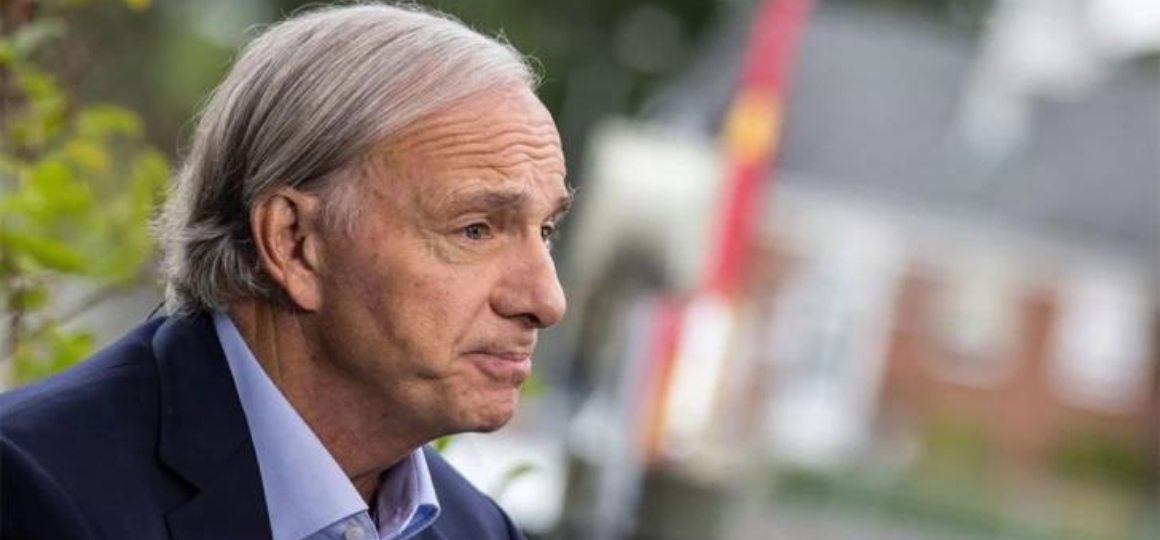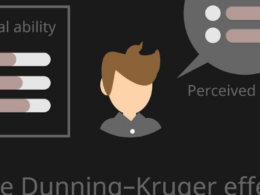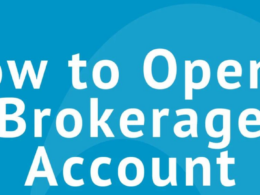Table of Contents
Ray Dalio founded Bridgewater Associates, the world’s largest hedge fund, with around $130 billion in capital as of June 2022. After receiving a master of business administration (MBA) from Harvard Business School and beginning his career on Wall Street, Dalio started Bridgewater from his two-bedroom Manhattan apartment in 1975.
Dalio’s methods and principles—sometimes the subject of critique but also widely emulated by other executives and organizations in the financial services sector and beyond—played a key role in growing Bridgewater into the financial behemoth it is today. His philosophy is based on the notion that cause-and-effect relationships are the key to understanding complex realities. Dalio believes that studying how these relationships have shaped the past provides the key to making optimal decisions and unlocking success in the future.
KEY TAKEAWAYS
- Ray Dalio founded Bridgewater Associates, which grew to become the world’s largest hedge fund.
- Dalio operates his business based on established principles focused on cause-and-effect relationships and in-depth analysis of past phenomena.
- Dalio’s philosophy and Bridgewater’s culture of “idea meritocracy” and “radical transparency” have influenced the financial world and beyond.
Early Life and Education
Born in the Jackson Heights neighborhood of Queens, New York, on Aug. 1, 1949, Raymond Thomas Dalio grew up in a middle-class neighborhood on Long Island. His journey from a normal childhood to becoming one of the world’s most notable investors began when he was 12 and worked as a caddy at a local golf course. The markets were booming, and stocks were a big topic of conversation on the course.
Dalio saved up some of the money he was making on the links to buy his first stock—opting for shares of Northeast Airlines because it was the only company he was familiar with trading for less than $5 per share. While he would later admit that this was not the most solid basis for choosing an investment, the shares tripled in value because of a buyout, and this initial stroke of luck was enough to transform the young Dalio into a lifelong investor.
Although he remained engaged in the financial markets in high school, Dalio showed little interest in academic pursuits. His C average in high school was just enough to be accepted into local Long Island University’s C.W. Post College on a probationary basis. However, because postsecondary education offered the chance to focus on finance—the subject that truly interested him—Dalio excelled in school. After graduating at the top of his class in 1971, Dalio headed directly for Harvard Business School, where he received his MBA in 1973.
Best Brokers for Day Trading
See which online brokers provide speed and reliability at a low cost. We’ve broken down the pros and cons of each to help you make the best decision for your day trading needs.
LEARN MORE >
As a student, Dalio was introduced to Transcendental Meditation, which he has credited as a key to his business success. However, the young Dalio was not all peaceful and tranquil. Shortly after leaving Harvard, he had his first Wall Street position at Shearson Hayden Stone, where he worked with agricultural commodities futures, guiding cattle ranchers on how to hedge against risks to their business. On New Year’s Eve in 1974, an alcohol-fueled spat led Dalio to punch his supervisor in the face. Following his subsequent termination from Shearson, Dalio convinced some agricultural clients to hire him as a consultant, and he founded the firm Bridgewater Associates.
Bridgewater Associates
Dalio’s initial conception of the firm included a vision for trading commodities overseas—hence the reference to bridging waters in the name—but the company solidified its role as a consultancy. Bridgewater operated under Dalio’s belief that cause-and-effect relationships offered tools to predict every business element. Regarding agricultural commodities, he zeroed in on the number of animals, how much meat would come to market, how much cattle eat, and thus the amount of grain like corn and soy consumed. Regressions of weather forecasts and yield allowed Dalio and Bridgewater to predict the time and quantity of goods coming to market in a way that other analysts would miss.
The superior level of analysis led Bridgewater to some early successes. However, there were still some bumps in the road in the story of Bridgewater’s growth from its founding in Dalio’s small apartment to a hedge-fund powerhouse. Based on the volatility seen in the markets at the end of the 1970s, Dalio publicly predicted a depression in 1982.
FAST FACT
Bridgewater’s strategy is designed to function whether the markets are moving upward or downward and is adaptable to clients’ risk preferences.
However, stocks in the early 1980s instead entered a massive, long-term bull market, causing Dalio to lose almost everything. He was forced to dismiss his employees, sell possessions, and even borrow money from his father to remain afloat. While the firm eventually recovered, the experience taught Dalio important lessons about avoiding overconfidence and learning from mistakes.
These lessons paid off, with Bridgewater eventually becoming the world’s largest hedge fund and earning more money for its investors than any other hedge fund. The firm’s success has been driven by incorporating Dalio’s evidence-based investment principles into algorithms and computerized decision-making systems that are backtested and enhanced by human insights to determine the best investments in liquid stocks, bonds, currencies, and commodities.
Among his many accomplishments, Dalio is known for helping McDonald’s Corp. (MCD) bring the Chicken McNugget to the market. Dalio was a consultant for the fast-food giant, concerned about securing a source of chicken at a stable price before launching the product. Dalio also advised a chicken producer. By focusing on the chicken as a simple machine based on the feed it required, Dalio helped the chicken producer use corn and soy futures to lock in its costs, which allowed it to offer McDonald’s a favorable fixed price and enabled the launch of the bite-sized and dippable product known throughout the world today.
Throughout Bridgewater’s years of growth, Dalio served as the firm’s chief executive officer (CEO), chief investment officer (CIO), and chairman. However, he has recently stepped down from those positions, transferring additional responsibilities to his colleagues and partners. In September 2022, Dalio transitioned from his more formal leadership roles. Still, he will continue mentoring Bridgewater’s CIOs and other top-level managers as an operating board member and a senior investor.
Tip: According to the Forbes list of the world’s billionaires, Ray Dalio’s net worth as of October 2022.
Ray Dalio’s Principles
Dalio conducts his business based on a series of principles he has written down, which he firmly believes everyone should also write down and use in their decision-making processes. Recognizing the cause-and-effect relationships underlying complex realities is a key to success, and unlocking these relationships is the most effective way to guide trading and investing decisions. More specifically, Dalio attributes Bridgewater’s success to his adherence to the following principles, among others:
- It is critical to learn consistently from life’s lessons life’s lessons, adapt to new realities, and enhance one’s capacity to manage reality.
- The world—and the markets—work like a machine, with even the most complex realities resulting from cause-and-effect relationships.
- History tends to repeat itself. Although there may be variations, carefully studying the cause-and-effect relationships underlying past phenomena allows for comprehension of ongoing processes and the development of strategies for responding to them.
- Success depends on adopting concrete principles, stress-testing them, and sticking to them.
- Working together with others and establishing a positive group culture is another key to achieving goals.
- Dealing with gaps in knowledge is even more important than leveraging knowledge.
Important: Ray Dalio believes that writing things down ensures a thorough analysis. Early in Bridgewater’s history, Dalio began sharing his ideas with clients in a publication known as Bridgewater Daily Observations. He also published a book in 2017 titled Principles: Life and Work, detailing his philosophy. He also regularly posts videos to a YouTube channel.
Beyond these principles, some other ideas central to Dalio’s philosophy and Bridgewater’s success are worth mentioning. The firm operates based on an “idea of meritocracy.” In other words, the best ideas triumph, regardless of where they come from in the employee hierarchy. While everyone is entitled to participate in the conversation, meritocracy typically gives more weight to the opinions of those with more expertise in the subject.
Another important concept for Dalio’s philosophy and Bridgewater’s culture is “radical transparency.” This involves recording and making available all meetings and interviews within the company, limiting the potential for office politics to devolve into unspoken animosity, covert disagreements, and conflicting agendas. In Dalio’s view, this radical transparency creates an environment of radical truthfulness, with openness and honesty as key ingredients in a team’s success.
FAQs
1. What is Ray Dalio famous for?
Ans: Ray Dalio is best known as the founder of Bridgewater Associates, the world’s largest hedge fund. Dalio founded the firm out of his apartment in 1975 and served as its chief executive officer (CEO), chief investment officer (CIO), and chairman.
2. What is a hedge fund?
Ans: A hedge fund is an alternative investment managed by professional fund managers who adopt various strategies to achieve above-average returns. Hedge funds operate as limited partnerships of private investors. Because of the levels of risk involved, they often require a high minimum investment, making them more suitable for wealthy accredited investors.
3. What are Ray Dalio’s principles?
Ans: Dalio’s principles involve analyzing the markets like a machine in which complex realities stem from cause-and-effect relationships. He believes that studying many cases from the past provides a foundation for interpreting current conditions and making optimal decisions. Dalio also encourages a culture of “idea meritocracy,” in which the firm adopts the best idea regardless of hierarchy, and “radical transparency,” in which all meetings are recorded to ensure open and honest working relationships.
The Bottom Line
Dalio is a famous investor and the founder of Bridgewater Associates, which he played a central role in growing into the world’s largest hedge fund. His principles of investing, which include focusing on cause-and-effect relationships and analyzing past cases, have had far-reaching influence in the financial world and beyond. Listed as one of the world’s most influential people by Time magazine in 2012, he has pledged to donate half of his wealth to charity during his lifetime.
Trade on the Go. Anywhere, Anytime
One of the world’s largest crypto-asset exchanges is ready for you. Enjoy competitive fees and dedicated customer support while trading securely. You’ll also have access to Binance tools that make it easier to view your trade history, manage auto-investments, view price charts, and make conversions with zero fees. Make an account for free and join millions of traders and investors on the global crypto market.










